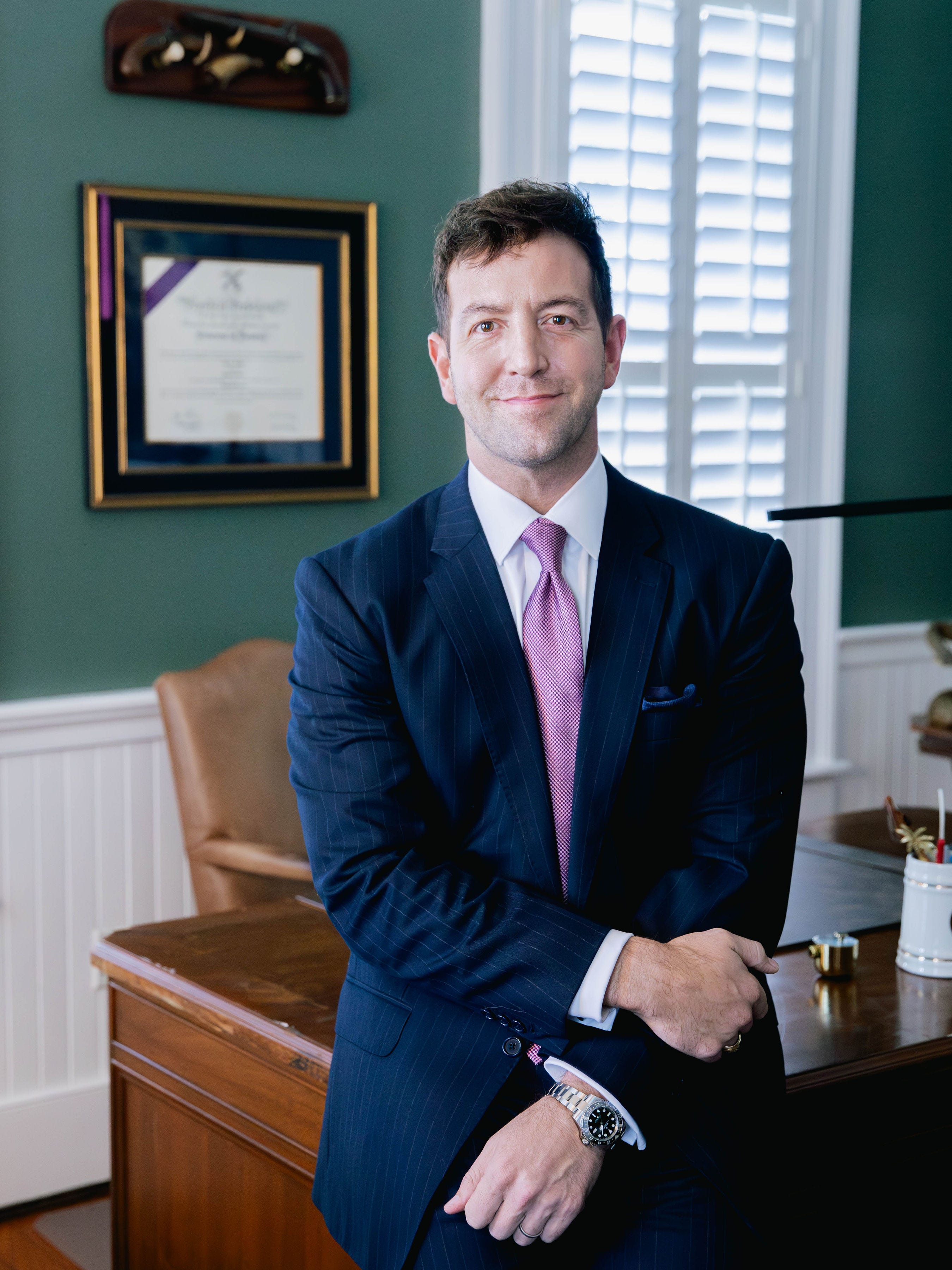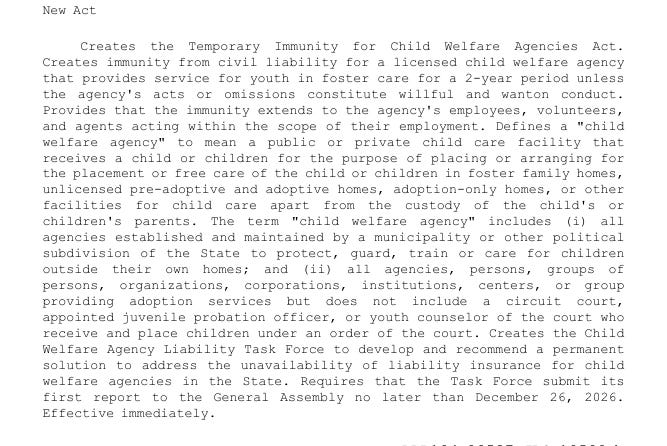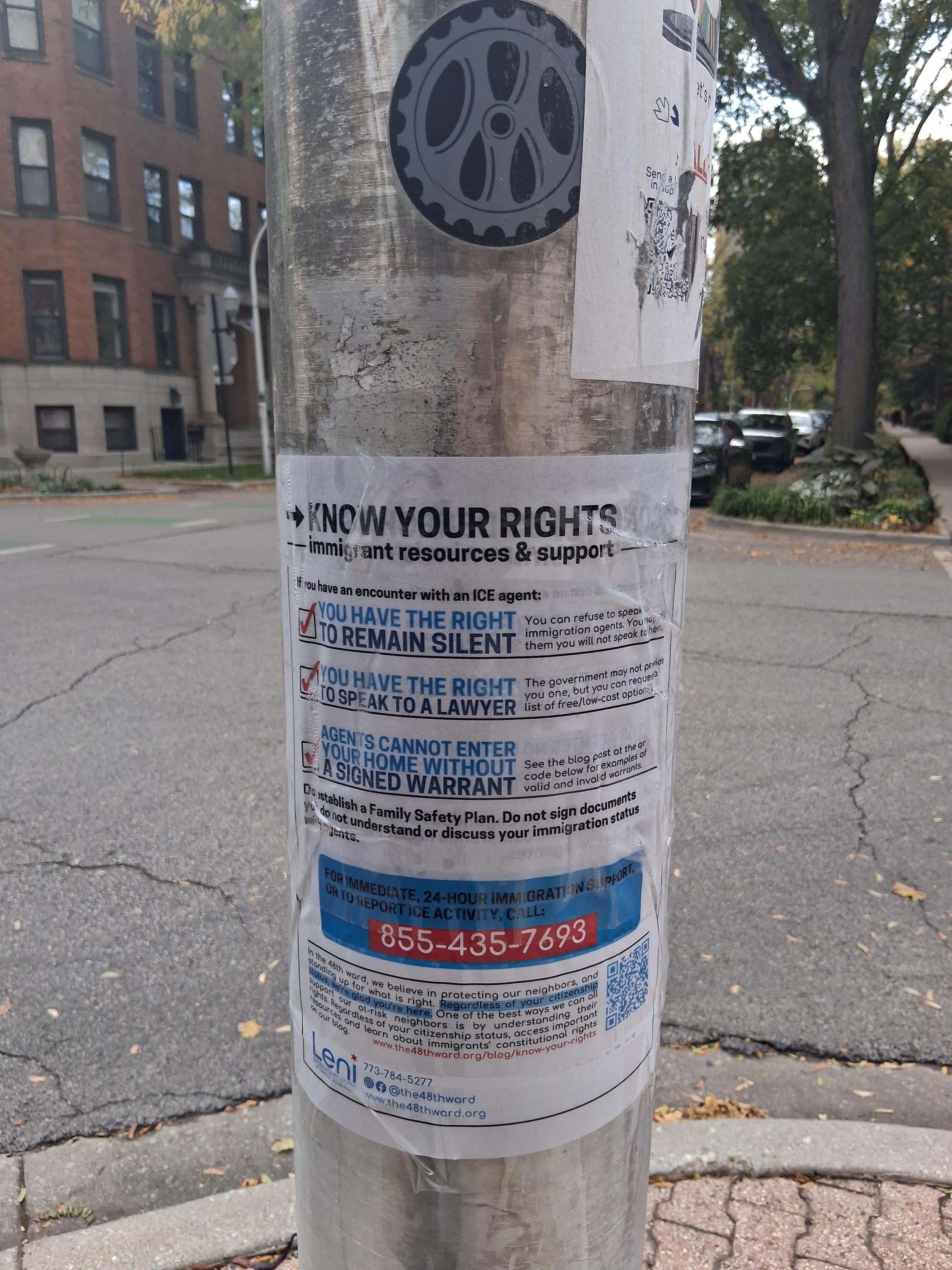

Michael Volpe Investigates (private feed for sbmotheroftwo@gmail.com)
https://api.substack.com/feed/podcast/573277/private/894d26b9-b61b-4f92-8018-ac22f7c90b40.rssEpisode List

The Unknown special report: an interview with South Carolina Republican State Representative Gil Gatch
Republican South Carolina State Representative Gil Gatch said he is “passionate” about reforming the family court system in his home state, but he does not like the idea of an ad hoc committee to look at the issue. For approximately six months, Richard Luthmann and I have documented as first Arizona and then Idaho formed a special committee to examine family court. We have an interviewed Arizona Republican State Senator Mark Finchem, Arizona Republican State Representative Rachel Keshel, Arizona Republican State Representative Lisa Fink, and Idaho Republican State Senator Tammy Nichols. In Arizona, that state formed the ad hoc joint committee on family court orders. State Senator Finchem chaired the special committee, and he explained why it was necessary, “The need for this (an examination of family court) transcends the Senate.”He continued, “We needed to bring our Representative partners in to be a part of the process.” In South Carolina, in 2024, that state had the ad hoc joint committee on judicial nominations.That state seemed ripe for this type of a committee, but State Representative Gatch thought it was unnecessary. “It just adds another layer and delay,” Gatch said of an ad hoc committee, “I think that we can argue about this in the committee system.” “If you do an ad hoc, you’re talking about six months (before any bills are presented).” He continued. “If we do have them, there will be many more obstacles that are created that get in the way.”He further said the ad hoc committee would be coopted by opponents of reform. He said that in the South Carolina House of Representatives the Judiciary Committee has a subcommittee dedicated to family court, capable of everything the ad hoc committee is meant to do. Gatch has been active in introducing legislation for reforming family court. In particular, he has taken aim at the guardian ad litem (GAL) system.“They’re ordered by the court to investigate the issues related to the children,” Gatch explained; he is a practicing attorney, including in family court, along with a state representative. In an article in a local website, Gatch was quoted as saying that GALS have, “too much power.” He said there was a problem with oversight, an inability to hold bad deeds accountable, and the law was being manipulated. He said that in South Carolina GALs are not supposed to make any custody recommendations at the custody hearing, but that doesn’t stop GALs from making recommendations at prior hearings. Then, he said, those recommendations are used to make temporary orders which usually remain in place and become permanent orders. Remarkably, he also said that GALs are not forbidden from having some sorts of ex-parte communications. While they are forbidden from having conversations with judges- without the presence of both sides- they can have ex-parte communications with lawyers. In 2021, I busted Missouri GAL, Elaine Pudlowski, doing just that. Susi represented the mother in this case from September 2017-June 2018; during that period she was in constant contact with Pudlowski, who was the Guardian ad Litem (GAL).A GAL is brought into custody cases to represent the best interest of the child or children.They were repeatedly in inappropriate communication. In one instance, they scheme behind the scene to stop mom from having her daughter see a therapist.His bill, House Bill 3079, would put an end to these ex-parte communications. Gatch also told us that he favors the 50/50 presumption, meaning a judge would assume that 50/50 is the best arrangement for custody unless there is compelling evidence- generally evidence of abuse or neglect from one parent-that rebuts that presumption. In Florida, the 50/50 presumption is state law. Gatch told us that in South Carolina it is the opposite. In South Carolina, the presumption is not to assign 50/50, unless there’s compelling evidence in favor of it. After the interview was recorded, he and several other legislators introduced an equal shared parenting bill into the legislature. This is a public episode. If you'd like to discuss this with other subscribers or get access to bonus episodes, visit michaelvolpe.substack.com/subscribe

The Unknown special report: an interview with Bailey Templeton
Bailey Templeton is taking on a David Vs. Goliath electoral challenge. She’s running as a Republican in the primary next year for the Illinois House in the 94th District. Her opponent is Norine Hammond, the long-term incumbent who is also the “Deputy Republican Leader and chief budget negotiator for the House Republican Caucus,” according to Hammond’s website. Templeton told us that Hammond’s office provided little support for her last year when the Illinois Department of Children and Family Services (DCFS) investigated her. Templeton is suing DCFS and said she didn’t want to get too specific, however, she said that DCFS challenged her decisions in treating her child’s cancer. Templeton said the tipping point for her run for the Illinois House was Hammond’s support for HB 3138, a bill which would give sweeping immunity to DCFS caseworkers. “Creates the Temporary Immunity for Child Welfare Agencies Act. Creates immunity from civil liability for a licensed child welfare agency that provides service for youth in foster care for a 2-year period unless the agency’s acts or omissions constitute willful and wanton conduct.” The bill states in part. Hammond’s office did not respond to an email for comment. Bailey has recently scrutinized DCFS, particularly the numbers of missing kids. Documents to show the number of missing youth in care from the Department of Children and Family Services still “have not been located.”The Center Square’s Freedom of Information Act request for the number of missing children from 2019 to 2025, filed on Oct. 21, still has not been fulfilled. The FOIA officer said “Once the documents are located, assuming they exist, the FOIA office will review and release records as appropriate.”The response comes despite state House candidate Bailey Templeton receiving a FOIA response in early October showing a nearly 1,000% increase in the number of missing children from 2023 to 2024 for a total of 166. A DCFS spokesperson told The Center Square that the previously released numbers were “not completely accurate.”Bailey told us that the numbers DCFS provided her showed that missing kids in DCFS care have grown exponentially, from one in 2017 to 166 in 2024. Bailey told us that reforming DCFS starts with a “third party audit.” Job shadowing was another idea; she said that in many cases interns within DCFS are conducting investigations which determines if a child is removed. Bailey also said that the definition of neglect needs to change.“Being poor is neglect {currently},” Bailey said. She said that medical decision making, if it goes against the recommendation of the wrong doctor, is considered neglect. Bailey said that there is a financial incentive to remove a child from the home and no financial incentive to keep families together. Her first bill would be modeled on a bill in Texas, banning DCFS involvement when treating childhood cancer. HB 1652 in Texas would do just that. The pertinent portion states, “RIGHT TO ELECT CANCER TREATMENT. (a) Notwithstanding any other law, a parent of a child who has been diagnosed with cancer may elect for the child: (1) to receive any available cancer treatment, including an experimental treatment; or (2) not to receive any cancer treatment.”Proponents of intervention argue that parents choose foolish treatments, and the state needs to get involved to make sure a child gets the proper treatment. I asked Bailey about this concern. “I would argue that the thing that could save them is not proven to save them,” Bailey responded, “Chemotherapy and radiation could kill a healthy person.” Below, check out Bailey’s full answers on reforming DCFS. Bailey said another important issue for her was medical freedom, particularly against mandating vaccines as a requirement for attending public schools. This was something Miste Karlfeldt spearheaded in Idaho- check out my interview with Miste here- and opponents argued that it would reintroduce diseases long eradicated by vaccines into our school system. The new law sets Idaho apart from even conservative-leaning South Carolina, where two schools recently quarantined more than 150 unvaccinated children after measles arrived.A person can spread measles for four days before symptoms appear. During the South Carolina schools’ quarantine, five students began to show symptoms, but the quarantine kept them from spreading it, the health department said this month.That precaution would now be illegal in Idaho.Idaho’s law caught the attention of people who share Manookian’s belief that — contrary to hundreds of years of public health evidence and rigorous regulation in the U.S. — vaccines are worse than the diseases they prevent.It also caught the attention of people like Jennifer Herricks, a pro-vaccine advocate in Louisiana and advocacy director for American Families for Vaccines.Herricks and her counterparts in other states say that vaccine requirements have “done so much good for our kids and for our communities.”An analysis published last year by the U.S. Centers for Disease Control and Prevention found that routine childhood vaccines prevented more than 1.1 million deaths and 32 million hospitalizations in the U.S. over three decades, saving $540 billion in direct costs and saving society about $2.7 trillion. The analysis was limited; it didn’t account for the lives and money saved by vaccines for flu or RSV, which kill and hospitalize babies and children each year.I asked Bailey about this, and she said this was fear mongering from the mainstream medical community. She further said that many of the diseases that mainstream medical thought said was cured by vaccines were being eradicated before the vaccines came out. I know that with smallpox, either the disease coincidentally died out at the same time the vaccine came out, or it was the vaccine. One other issue that Bailey said was important to her is homeschooling, which she does with her children. She said the best way to preserve homeschooling is to make sure that HB 2827 does not pass. HB2827 would create all sorts of new requirements, paperwork, and tracking for homeschoolers, which homeschoolers like Bailey say infringes on parent’s rights. This is a public episode. If you'd like to discuss this with other subscribers or get access to bonus episodes, visit michaelvolpe.substack.com/subscribe

The Unknown Episode 63: Debating ICE tactics
Richard Luthmann and I were back for the 63rd edition of The Unknown.In the current event segment, we discussed the blowup regarding ICE tactics in Evanston, Illinois, a suburb just north of Chicago. Things blew up days after I visited Evanston and found no anti-ICE signs or (Immigration and Customs Enforcement) ICE activities. My trip turned out to be the calm before the storm. A major confrontation between ICE agents and residents- most of whom are citizens-occurred over the weekend. A day after a major confrontation between Evanston community members and federal immigration agents at the intersection of Oakton Street and Asbury Avenue on Friday afternoon, three people detained at the scene have been released without charges, one of whom shared new details on the incident with the RoundTable.Several residents described a car crash on Friday involving a U.S. Customs and Border Protection car and a red sedan around 12:20 p.m., which was followed by a confrontation between the agents, the sedan’s female driver and two bystanders.Witness statements and videos posted to social media confirm that the agents detained three people and deployed pepper spray against a large crowd of residents. One agent pointed his weapon twice at people filming with their cellphones, the video shows.The incident had an emerging pattern indicative of ICE confrontations. ICE seems to get into a lot of crashes, and they use pepper spray like it’s going out of style. The last time that I remember the Chicago Police Department (CPD) using pepper spray was in the 1968 Democratic convention: meanwhile, with ICE in the Chicagoland area, it’s a near daily occurrence. The first thing that hit Sarah Parise was an unfamiliar, pungent smell.She looked down at her ginger-haired 2-year-old, Leia, who was taking a turn pushing her own stroller near a grassy field where they had stopped to play on a Saturday morning walk.Then, it kicked in.“All of a sudden, my eyes were just burning and I couldn’t breathe,” Parise said.Leia began to scream: “Mommy! Mommy! Ouch! Ouch! Ouch!”Law enforcement is supposed to be trained to respond with minimum force necessary, and yet, ICE releases pepper spray so much a federal judge told them to knock it off.ICE agents also seem to get into a lot of traffic accidents. Take the story of Dayanne Figueroa, a Hispanic US citizen from Chicago. She was on her way to a coffee shop when she collided with an unmarked ICE vehicle and dragged out. Dayanne Figueroa was on her way to get coffee before heading to work when she encountered a chaotic scene in the West Town neighborhood of Chicago: heavily armed, masked federal agents making arrests on a residential street.People yelled as vehicles honked their horn — a sign now used to alert neighbors that immigration federal agents are in the area — and witnesses said federal agents had arrested several landscaper workers presumed to be in the country without authorization.As Figueroa tried to drive through the 1600 block of West Hubbard Street on Oct. 10, an unmarked vehicle driven by federal agents collided with Figueroa’s as it tried to speed away from a hostile crowd, multiple videos reviewed by the Chicago Tribune show.Seconds after the crash, agents abruptly stopped their vehicle and exited with weapons in hand pointing at Figueroa, a U.S citizen. Agents then forcibly opened her door and pulled her out of the vehicle by her legs without identifying themselves, presenting a warrant or informing her that she was under arrest. As bystanders yelled, “You hit her! We have it on video!” agents ignored the crowd and forced Figueroa into a red minivan and drove away. There have been numerous traffic incidents, including one in Evanston, and each time, Tricia McLaughlin, who has emerged as ICE’s chief apologist and propagandist, will put out a statement claiming that the citizen was the aggressor. That’s what McLaughlin did in Figueroa’s case. “U.S. Border Patrol was conducting a targeted immigration enforcement arrest of two illegal aliens when an individual used her vehicle to block in agents, honking her horn. As agents were departing, the driver, a U.S. citizen, used her Mercedes Benz to ram the agent’s vehicle,” McLaughlin said. “In fear of public safety and of law enforcement, officers attempted to remove her from the vehicle. She violently resisted, kicking two agents and causing injuries. This agitator was arrested for assault on a federal agent.”That’s not what video of the incident shows; it’s ICE agents who were the aggressors. There are about a dozen of these incidents, and the McLaughlin’s statement is always the same: a citizen aggressively caused an accident with an ICE vehicle, which is usually unmarked. A woman detained by ICE agents in Evanston and taken to a Federal Bureau of Investigation (FBI) office in Chicago said she witnessed ICE agents driving aggressively trying to cause an accident. Moriarty said she and the other two detainees were in the same car when it left the scene, and that it was driven by the Border Patrol agent filmed aiming his weapon at residents. She said the agent drove them “all over the place” for several hours, crossing between Evanston and Rogers Park, and said that at multiple points he slammed on his brakes to try and cause another car to hit his vehicle.“He jumped out of the car [and] ran to the car behind with his mace out, to try and mace these people — he did that on two occasions,” Moriarty said. “He did it a third time, and one of the other agents in the car said, ‘Do not get out of the car this time.’”Trump made major gains with the Hispanic community, but those gains are likely gone. He’s targeting Hispanic communities with these raids. Agents are discerning and often target US citizens. They are thugs, in my opinion. See the ICE segment below. This is a public episode. If you'd like to discuss this with other subscribers or get access to bonus episodes, visit michaelvolpe.substack.com/subscribe

Michael Volpe Investigates special report: the political donations of the Beermann Law Group
The Beermann Law Group carries a lot of weight in the family court system in Cook County and the surrounding counties.They have been accused of running a bribery scheme in a lawsuit filed by Kenton Girard. Earlier this month, Karmen Andrews told me that she experienced bias when dealing with Beermann in her ongoing child custody case. Beermann has also been active in politics, according to Illinois election campaign donation records, and I reached out to Marty Gottesfeld for help making sense of their political donations. He told me that found that between contributions from the firm, the lawyers in the firm, and their family members, Beermann gave over $184,000 during the period Marty looked at. While that number may seem high, donations go back to 2000, Beermann has approximately 50 attorneys in their two offices, and exponentially that many people when their family is included. Furthermore, the donations are spread to a variety of races. For instance, Beermann gave money to the aldermanic campaign of Bob Fioretti (when he was running for alderman over a decade ago), the 2nd ward Democratic Organization, and Ed Burke, the longtime alderman who was recently released from federal prison. Beermann also contributed to candidates with a direct relationship to their work like Illinois Appellate Judge Aurelia Pucinski, Beermann also contributed to Justice Rita Garman, formerly on the Illinois Supreme Court. Judge Cecilia Gamrath is currently on the Illinois Appeals Court, but she was a Cook County Circuit Judge when she received multiple campaign donations from Beermann. One name conspicuously missing from campaign donations is Judge Regina Scannicchio. Judge Scannicchio was implicated by Kenton Girard, when in amended petition to his lawsuit, he argued that she made sure that only Beermann friendly judges were appointed to his case. In 2024, Judge Scannicchio exhibited bias and a heavy-handed approach when I witnessed a hearing between Eddie Engels and Feliza Castro, who was represented by Beermann. Beermann didn’t make any donations to her campaigns. Marty provided a potential explanation by email.Regina Scannicchio ran unopposed and has since only had retention elections, it seems: https://ballotpedia.org/Regina_Ann_Scannicchio.It does strike me as odd that she garners only a little over 75% in the retention elections. To have one fifth of the electorate not want her makes it seem many are aware of something that makes them dislike her.Anyway, she may not have registered a campaign org given she’s never had even token opposition.Stay tuned for more on Beermann. This is a public episode. If you'd like to discuss this with other subscribers or get access to bonus episodes, visit michaelvolpe.substack.com/subscribe

The Unknown Episode 62: Trump in Asia, ICE in Chicago, Grassley exposes Francesca Amato, and more.
(Note, for now, The Unknown will be on Rumble; find out why here.)Richard Luthmann and I were back for the 62nd episode of The Unknown. In the current events segment, President Trump was in Asia, and Richard called it another momentous occasion. He was making agreements, or at least close to an agreement with South Korea.President Donald Trump said Thursday in South Korea that Seoul has agreed to invest $350 billion in the United States, marking a partial breakthrough in trade negotiations after months of discussions.“South Korea has agreed to pay the USA 350 Billion Dollars for a lowering of the Tariff’s charged against them by the United States,” Trump wrote on Truth Social after meeting South Korean President Lee Jae Myung on the sidelines of the Asia-Pacific Economic Cooperation Summit in Gyeongju, South Korea.Lee’s chief of staff, Kim Yong-beom, and other senior officials said at a briefing Wednesday that Trump and Lee had resolved some of the key issues around the $350 billion investment pledge Seoul made as part of a preliminary July agreement to avoid higher U.S. tariffs. According to a report in the Seoul-based Yonhap News Agency, South Korea has committed to spending $200 billion in cash, paid in installments not exceeding $20 billion per year. The remaining $150 billion will be directed toward the U.S. shipbuilding industry, according to Lee’s aides, a top manufacturing priority for the Trump administration.After the broadcast, Trump also announced the framework for a deal with China. President Donald Trump touted an “amazing” meeting with Chinese President Xi Jinping in South Korea, saying the two leaders reached agreements to reduce tariffs on Chinese imports, delay Chinese restrictions on its rare earth mineral exports and secure Chinese purchases of American soybeans and other farm products.Still, key topics -- including Chinese designs on Taiwan and a potential deal to keep TikTok operating in the U.S. -- were not addressed, according to the post-meeting remarks from Trump and official Chinese readouts.Speaking to reporters aboard Air Force One following the meeting with Xi, which lasted about 1 hour and 45 minutes, Trump said the 20% tariffs on China related to fentanyl were being reduced to 10%, bringing the total amount of duties imposed on Chinese imports from 57% to 47%.China has committed to buying US stuff before and they don’t follow through. Also, while he’s making deals in China, Trump raised tariffs on Canada after a mean commercial. President Donald Trump announced he’s adding an extra 10% tariff on Canadian imports over a negative TV commercial featuring a speech by President Ronald Reagan.Officials in the province of Ontario have said the ad, which protests Trump’s tariff policy, will be pulled from the airwaves next week. However, Trump said in a social media post that given the ad was played during Game 1 of the World Series Friday night, he is increasing duties on Canadian goods.The ad was played again during Game 2 of the World Series on Saturday night.Tying tariff rates to hurt feelings is bad policy. Trump has made some deals, but he’s also raised a lot of tariffs. I give him a C+ grade so far. In Chicago, Immigrations and Customs Enforcement (ICE) has used a lot of tear gas, frightened quiet neighborhoods, while alienating almost every resident. A Chicago area judge- US District Judge Sara Ellis, an Obama appointee- ordered ICE to stop firing tear gas, for the Chicago commander to produce all after action reports since September, and for him to come to her court every day for a briefing until their next hearing next week. An appeals court blocked her order requiring the commander, Greg Bovino, to come to her courtroom daily for a briefing. Though ICE is engaging in gestapo like tactics, the Judge is also drunk on power, in my opinion; I don’t think she can dictate what their use of force limits are. What the HalesIn the What the Hales segment which started 29 minutes in, Jeremy Hales and his minions nuked my YouTube account. Worse yet, they’re dancing on my grave. The claim is that the channel had nudity and sexually explicit content, a charge as contrived as all of Hales complaints. I’m in contact with YouTube, hoping to appeal the appeal. YouTube insists that no action is ever taken without a good reason.I’d like to share that we rely on YouTube community members to report or flag content that they find inappropriate. Reporting content is anonymous, so other users can’t tell who made the report. That means a mass report can be made on your content or channel, but it’s up to our team to review and confirm if your channel or content really violated our policies and guidelines. If our review team doesn’t find any violations, no amount of reporting will change that, and the video and channel will remain on our site.That’s their story, and they’re sticking to it. If this was so, why are they allowing a second appeal? I think everyone knows that YouTube, and most successful social media platforms, primarily rely on AI to process complaints like these. YouTube has still not said which videos are the offending ones. Overnight they removed my entire channel. They won’t say which videos caused the removal, nor will they let me remove any offending material. How is that for transparency? Our storiesIn the final segment which started 1:08:00 in, we detailed Julie Holburn’s article on Francesca Amato. Julie’s reporting followed reports by Richard and me about a fake bill Francesca used to get hundreds of parents to DC. She claimed that there was a Congressional hearing, when she held a meeting in a library. After the initial reports, Francesca pushed the envelope and claimed that both Iowa Republican Senator Chuck Grassley and Alabama Republican Congressman Barry Moore were sponsoring the bill. Julie reached out to both offices, and they denied this. A staffer for Rep. Barry Moore’s Washington office said the congressman’s staff merely helped Francesca Amato reserve a room “as a courtesy” after she used the name of author, investigative journalist, and Alabama congressional candidate Terri LaPoint. Moore’s office, the staffer said, had a longstanding working relationship with LaPoint and had recently collaborated with her on H.R. 5647, the Advocates for Families Act of 2025, introduced in September.The staffer added that confusion arose when Amato invoked LaPoint’s name, leading some staff to believe she was part of the H.R. 5647 team. According to the staffer, Amato sent roughly 20 emails requesting a meeting room and later appeared in person at the D.C. office seeking space. “We did not sponsor or endorse the event or a bill,” the staffer said.…When contacted, David Bader, press secretary for Sen. Chuck Grassley, said he initially believed the inquiry referred to a similar-sounding bill — Sen. Tim Scott’s Families’ Rights and Responsibilities Act, a legitimate measure introduced in January 2025. After a quick computer search for FJAA turned up nothing, he said:“I will look into this one — and get back to you with some details,” Bader said.That clarification underscores one of several key distinctions: although a federal bill (S. 204) does exist under Sen. Scott’s name, the event organized by Amato and the FJAA has no comparable official existence—no sponsors, no hearing, no congressional record.Naturally, Francesca threatened to sue after the article came out. Your publication contains false and defamatory statements about me that were made without any legitimate journalistic standards or ethics. You did not contact me, seek comment, or attempt to verify the facts, and instead published a distorted version of events that is entirely false.Under U.S. law, knowingly publishing false statements that harm another person’s reputation constitutes defamation — including both libel (written defamation) and, where applicable, slander (spoken defamation). This includes fabricating information, publishing unverified claims as fact, or presenting opinion as fact in a misleading way.Because your statements were made publicly and have caused reputational harm, emotional distress, and potential economic damage, your actions fall squarely within the scope of civil liability under state defamation laws. Additionally, your conduct may constitute false light, a separate tort recognized in many states, which protects individuals from being portrayed to the public in a misleading or damaging way.It is important to note that calling yourself a journalist does not shield you from legal accountability. Real journalism requires diligence, fact-checking, and fair opportunity for response. You did none of these things. Instead, you acted with negligence — and potentially actual malice — by publishing untrue claims without evidence or fair process.I am demanding that you immediately remove all false and defamatory content you have posted about me and issue a public retraction. If this matter is not promptly corrected, I will consider every available legal remedy, including a defamation lawsuit, injunctive relief, and other civil actions to protect my rights and reputation.She previously threatened to sue me after my article. This is a public episode. If you'd like to discuss this with other subscribers or get access to bonus episodes, visit michaelvolpe.substack.com/subscribe
Create Your Podcast In Minutes
- Full-featured podcast site
- Unlimited storage and bandwidth
- Comprehensive podcast stats
- Distribute to Apple Podcasts, Spotify, and more
- Make money with your podcast












